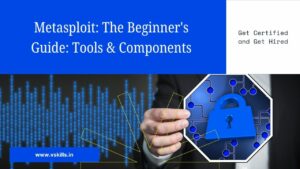In a world where financial crimes are becoming increasingly sophisticated, the demand for skilled Anti-Money Laundering (AML) and Know Your Customer (KYC) professionals has never been higher. From banks and fintech startups to multinational corporations, companies are doubling down on regulatory compliance to avoid hefty fines, reputational damage, and legal consequences.
As a result, AML/KYC roles have moved from being backend compliance positions to mission-critical roles that directly impact business continuity and trust. Hiring managers are no longer just looking for checkbox qualifications—they want professionals who bring real-world skills, a deep understanding of regulations, and the ability to adapt quickly in a fast-evolving regulatory landscape.
If you are looking to break into or grow within this field, your resume needs to do more than just list job titles and responsibilities. It needs to showcase the exact skills hiring managers are scanning for, often within seconds.
So what are those key skills that make your resume stand out from the stack? In this post, we break down the top 10 skills that hiring managers specifically look for in AML/KYC professionals, along with tips on how to effectively showcase them on your resume.
Why Standing Out in AML/KYC Job Applications Is More Critical Than Ever?
The compliance and financial crime landscape is evolving rapidly, and with it, the hiring demand for AML and KYC professionals is soaring. As governments and regulatory bodies tighten their grip on financial crime prevention, organizations are under immense pressure to build strong compliance teams that can identify risks, spot suspicious activity, and stay ahead of ever-changing regulations.
But here’s the catch—as the demand for compliance talent increases, so does the competition.
The influx of professionals transitioning into AML/KYC from operations, customer service, audit, and risk backgrounds has made the job market more crowded. Many candidates come armed with strong credentials and experience, making it harder to stand out with a generic resume.
In such a competitive environment, simply listing past job roles or qualifications isn’t enough. Hiring managers and recruiters are laser-focused on one thing: skills. They want to know whether you have the practical abilities and mindset to manage real-world compliance challenges, work with specialized tools, and contribute to risk mitigation from day one.
That’s why highlighting the right mix of technical and soft skills on your resume can be a game-changer. Not only does it help you pass the initial ATS (Applicant Tracking System) screening, but it also speaks directly to what hiring managers are prioritizing when building their AML/KYC teams.
Why Skills Matter More Than Ever in AML/KYC Hiring
In the dynamic and high-stakes world of financial compliance, skills have become the currency of credibility. As regulatory scrutiny intensifies and financial crimes grow in complexity, hiring managers are no longer just screening for academic qualifications or years of experience—they are laser-focused on candidates who can demonstrate real, practical skills that match the pace and pressure of the role.
The Global Landscape Is Driving a Shift
Regulators across the globe—whether it’s the FATF, FinCEN, the EU AML directives, or local enforcement agencies—are holding financial institutions to a higher standard. This has transformed AML/KYC roles from back-office functions to frontline defense positions.
- Compliance professionals today must:
- Understand and implement rapidly changing regulations
- Investigate and report suspicious behavior with accuracy and speed
- Use specialized tools to detect and prevent money laundering risks in real time
This shift means hiring managers aren’t just hiring resumes—they’re hiring capabilities.
Experience Isn’t Enough—Execution Is Everything
It’s not uncommon to find candidates with 5+ years of AML experience struggling to land interviews, while someone with 2 years and the right skill set rises to the top. Why? Because experience alone no longer guarantees value. What matters more is what you’ve accomplished and how you’ve done it.
Hiring managers ask:
- Can this candidate assess risk across multiple jurisdictions?
- Have they used platforms like Actimize, LexisNexis, or World-Check?
- Can they prepare STRs or SARs with clarity and compliance in mind?
- Do they understand how to respond when a regulator asks questions?
These answers live in the skills—not just the years.
Growing Competition Means Less Room for Generic Resumes
The demand for AML/KYC professionals has risen sharply due to growing regulatory burdens, but so has the number of applicants. Especially in financial hubs like Singapore, London, Mumbai, and New York, job openings often attract hundreds of resumes.
Hiring managers quickly scan for skills that align with the job description—and they know exactly what they’re looking for. Vague terms like “involved in due diligence” or “participated in investigations” just won’t cut it anymore.
Instead, candidates need to spell out:
- What types of clients they worked with (e.g., high-risk, offshore, PEPs)
- Which tools they used and how they used them
- Specific outcomes—faster onboarding, reduction in false positives, improved audit ratings
In this context, your skills become your personal brand.
The Rise of Technology-Driven Compliance
Another key reason skills matter more than ever is the growing use of technology in AML/KYC. From AI-powered transaction monitoring systems to automated KYC checks and adverse media screening, tech is deeply embedded in compliance workflows.
This means hiring managers also assess your ability to:
- Work with data and dashboards
- Interpret alerts generated by complex systems
- Adapt to new platforms and software quickly
If your resume doesn’t mention the tools and techniques you’re comfortable with, it may be perceived as outdated.
Soft Skills Are Critical Too
While technical skills are crucial, soft skills can be equally decisive in hiring decisions, especially as AML/KYC teams work cross-functionally with legal, operations, and audit departments.
Hiring managers want professionals who can:
- Communicate findings clearly to both technical and non-technical teams
- Work under pressure and meet tight regulatory deadlines
- Collaborate effectively and maintain integrity under scrutiny
- In short, compliance is no longer a siloed role—it’s an integrated function, and strong interpersonal skills give you a clear edge.
At the end of the day, AML/KYC professionals are guardians of trust. Institutions depend on them to spot risks, protect customers, and stay out of regulatory trouble. That trust begins with the skills you bring to the table—and how clearly you present them. So, whether you’re polishing your resume, preparing for interviews, or switching careers into compliance, remember:
In today’s market, it’s not just what you know—it’s what you can show.
Top 10 skills Hiring Managers look for in AML/KYC Resumes
In an increasingly regulated financial landscape, AML (Anti-Money Laundering) and KYC (Know Your Customer) professionals are not just in demand they are vital. But employers are no longer satisfied with resumes that just list job titles. They want to see the skills that prove you can analyze, act, and adapt in a high-risk environment.
Let’s break down the top 10 skills hiring managers actively seek, why they matter in practice, and how you can highlight them effectively on your resume:
1. Customer Due Diligence (CDD) & Enhanced Due Diligence (EDD)
CDD and EDD form the core of AML/KYC processes. Hiring managers want professionals who know how to perform identity checks, assess risk levels, and escalate red flags during client onboarding or periodic reviews. Especially in high-risk cases (PEPs, offshore entities, or unusual corporate structures), EDD becomes critical.
How to present it effectively:
- Use active language like “conducted,” “reviewed,” or “performed.”
- Quantify your experience if possible (e.g., number of reviews completed weekly/monthly).
- Highlight the variety of jurisdictions or client types you’ve worked on.
Example Resume Bullet: Conducted CDD and EDD for over 500 clients annually, including high-risk PEPs and offshore companies, ensuring full compliance with internal risk policies and FATF guidelines.
2. Transaction Monitoring & Alert Analysis
Monitoring customer transactions is critical in identifying unusual behavior and potential money laundering attempts. Hiring managers want to see that you can analyze alerts efficiently, identify patterns, and escalate when appropriate.
How to present it effectively:
- Mention the systems you’ve used (e.g., Actimize, SAS AML).
- Emphasize investigative outcomes: Did your analysis result in SARs/STRs?
- Showcase your ability to distinguish between false positives and true risks.
Example Resume Bullet: Analyzed 100+ daily transaction monitoring alerts using SAS AML, identifying and escalating suspicious patterns that led to 20+ STR filings in a quarter.
3. Knowledge of Regulatory Frameworks (FATF, OFAC, FinCEN, EU AMLD, etc.)
Every hiring manager expects candidates to be fluent in the key regulations that guide AML practices. Whether it’s understanding FATF’s risk-based approach or adhering to OFAC sanctions lists, demonstrating your regulatory literacy shows you’re ready to work in a globally compliant environment.
How to present it effectively:
- Name specific frameworks or directives you’ve worked under.
- Tie the regulations to actions you’ve taken in your role.
- Include updates or changes you’ve helped implement following new rules.
Example Resume Bullet: Applied OFAC and FinCEN regulatory guidance in screening processes; helped implement EU AMLD5 directives into the firm’s onboarding procedures in 2023.
4. Risk Assessment & Client Risk Rating
Accurate risk classification helps institutions prioritize monitoring and avoid non-compliance penalties. Hiring managers want candidates who understand how to assess risks based on geography, industry, ownership structure, and transaction behavior.
How to present it effectively:
- Describe your methodology: how you scored clients or flagged red flags.
- Reference internal models or criteria used.
- Mention impact: reduced risk exposure, improved compliance scores, etc.
Example Resume Bullet: Performed risk assessments on corporate and retail clients using internal scoring models, resulting in improved detection of high-risk clients and a 10% reduction in false negatives.
5. Case Investigation & STR (Suspicious Transaction Report) Filing
STR filing is one of the most critical responsibilities in AML. Hiring managers want professionals who can compile evidence, analyze context, and prepare regulatory-ready documentation.
How to present it effectively:
- Include metrics (number of STRs filed, cases handled).
- Talk about the tools or data sources you used.
- Show how your reports contributed to audit readiness or regulatory compliance.
Example Resume Bullet: Investigated and documented 50+ suspicious activity cases quarterly, resulting in timely filing of STRs with the Financial Intelligence Unit (FIU) under strict compliance deadlines.
6. Proficiency with AML/KYC Tools (Actimize, World-Check, LexisNexis, Dow Jones Risk & Compliance)
Hiring managers often screen for tool-specific experience. Familiarity with platforms like Actimize or World-Check means less training and faster productivity.
How to present it effectively:
- List relevant tools under a “Tools & Technologies” section.
- Tie each tool to specific tasks or achievements.
- If certified or trained, mention it clearly.
Example Resume Bullet: Utilized World-Check and LexisNexis for real-time sanctions screening and adverse media monitoring during onboarding of high-net-worth individuals across multiple jurisdictions.
7. Analytical & Critical Thinking Skills
AML professionals are constantly piecing together incomplete information. Hiring managers look for people who can think logically, challenge inconsistencies, and arrive at well-supported conclusions.
How to present it effectively:
- Showcase problem-solving scenarios.
- Include examples of identifying unusual behavior or inconsistencies.
- Highlight decisions that impacted compliance outcomes.
Example Resume Bullet: Detected layering patterns across multiple accounts by analyzing transaction histories and cross-referencing with offshore entities; recommended STR filing to senior compliance officers.
8. Attention to Detail
In AML/KYC, the smallest oversight—like a misspelled name or skipped document—can cause regulatory failures. Hiring managers look for professionals who treat documentation and processes with precision.
How to present it effectively:
- Mention error detection or process improvements.
- Quantify accuracy where possible.
- Emphasize “zero-error” audits or successful compliance checks.
Example Resume Bullet: Identified discrepancies in UBO documentation during onboarding, preventing a potential onboarding breach and earning recognition from the internal audit team.
9. Communication & Report Writing Skills
Clear communication—both verbal and written—is vital for case escalation, collaboration with legal teams, and regulatory reporting.
How to present it effectively:
- Showcase written outputs (investigation reports, policy updates).
- Mention collaborations with internal teams or regulators.
- Highlight clear communication of complex compliance topics.
Example Resume Bullet: Drafted investigation reports and summary memos for 100+ cases annually, ensuring clarity and alignment with audit and legal requirements.
10. Collaboration & Cross-Functional Teamwork
AML professionals often work with onboarding, risk, audit, operations, and even tech teams. Hiring managers value team players who can navigate across departments effectively.
How to present it effectively:
- Mention specific teams you’ve worked with.
- Highlight cross-functional outcomes (e.g., improved onboarding time, resolved data gaps).
- Emphasize leadership or facilitation in group settings.
Example Resume Bullet: Partnered with operations and IT teams to automate KYC reviews, reducing onboarding delays by 20% and streamlining document collection workflows.
Certifications and Tools That Add Weight to Your Resume
While skills are undeniably the most important asset on an AML/KYC professional’s resume, certifications and tools can provide that extra edge—particularly when they reflect an in-depth understanding of the complex regulatory and compliance landscape. Here’s a breakdown of the certifications that hiring managers look for and how they can elevate your candidacy.
CAMS (Certified Anti-Money Laundering Specialist)
The Certified Anti-Money Laundering Specialist (CAMS) is one of the most recognized certifications in the compliance field. Offered by the Association of Certified Anti-Money Laundering Specialists (ACAMS), CAMS demonstrates expertise in identifying, preventing, and managing money laundering risks. It’s ideal for those in AML roles, particularly if you’re working with financial institutions, law enforcement, or regulatory bodies.
Why It Matters:
- Recognized globally as the gold standard in AML certification
- Validates your proficiency in detecting financial crime
- Demonstrates a strong understanding of global AML regulations and standards
Vskills Certification for AML/KYC Professionals
The Vskills AML/KYC Certification is a valuable credential for professionals looking to enhance their qualifications in financial compliance. The certification covers a broad range of topics, from anti-money laundering laws to the customer due diligence process, and helps demonstrate your ability to navigate complex KYC processes effectively.
Why It Matters:
- Recognized in India and several other countries as a reliable standard for compliance professionals
- Focuses on practical skills and knowledge required to perform KYC and AML functions
- Enhances your employability in the financial services and banking sectors
ACAMS Certification in Sanctions Compliance (CSCP)
The Certification in Sanctions Compliance (CSCP) offered by ACAMS is an essential qualification for those dealing with economic sanctions and regulations. This certification focuses on the compliance and risk management processes around sanctions programs, which are essential in the world of global AML.
Why It Matters:
- Specializes in understanding global sanctions regimes and their impact on financial institutions
- Enhances your ability to develop and implement an effective sanctions compliance program
- Appeals to professionals working in cross-border banking and global finance
Vskills Certified Financial Crime Analyst
This specialized certification offered by Vskills focuses on the detection and management of financial crimes like fraud, money laundering, and terrorist financing. With this certification, you’ll have in-depth knowledge of different types of financial crimes, the legal frameworks, and how to utilize systems to monitor and mitigate risk.
Why It Matters:
- Provides a comprehensive understanding of the financial crime landscape
- Perfect for professionals looking to expand their expertise beyond basic AML/KYC knowledge
- Increases your credibility with employers looking for experts who can manage complex risk environments
ICA International Diploma in Anti-Money Laundering
The International Compliance Association (ICA) offers the International Diploma in Anti-Money Laundering, which is ideal for those seeking a deeper, academic-level understanding of AML processes. This qualification is highly respected in international compliance communities and is suitable for those in managerial or advisory positions.
Why It Matters:
- Offers a deep dive into AML policy, customer risk assessment, and AML investigations
- Demonstrates high-level expertise that can prepare you for leadership roles in compliance
- Recognized by financial services regulators and institutions worldwide
Certified Financial Crime Specialist (CFCS)
The Certified Financial Crime Specialist (CFCS) is another certification that demonstrates proficiency in fighting financial crimes. This certification from ACFCS covers a wide range of financial crime areas, including fraud, money laundering, cybercrime, and more.
Why It Matters:
- Comprehensive certification that covers a wide range of financial crime areas
- Focuses on real-world application, helping professionals detect and respond to financial crime effectively
- Ideal for those who want a broader scope of expertise in financial crime detection beyond just AML and KYC
Tools and Platforms That Enhance Your AML/KYC Expertise
Aside from certifications, proficiency with AML/KYC software and tools can significantly boost your resume. Many financial institutions use specialized systems to carry out due diligence and track suspicious activities. Familiarity with these tools demonstrates that you’re capable of using technology to streamline processes and maintain compliance effectively.
Common AML/KYC Tools:
- Actimize: A widely-used platform for transaction monitoring and case management.
- LexisNexis: Offers powerful solutions for identity verification, due diligence, and adverse media screening.
- World-Check: A popular tool for screening high-risk individuals and entities against global sanctions and watchlists.
- FICO: Provides AML solutions with advanced analytics for detecting suspicious activities.
- SAS: Known for its fraud detection software and AML compliance tools.
Why Tools Matter?
- Increases efficiency: By mastering these tools, you’re better equipped to handle high volumes of transactions and monitor for red flags effectively.
- Improves accuracy: Tools can help reduce human error, particularly in high-stakes investigations, improving the overall quality of compliance work.
- Demonstrates technical proficiency: Knowledge of these systems shows that you can contribute to the operational side of compliance, not just the theoretical aspects.
In the ever-evolving world of AML/KYC compliance, certifications and hands-on experience with AML software tools are crucial to demonstrating your expertise and setting yourself apart in a competitive job market. Whether it’s through globally recognized certifications like CAMS or industry-specific qualifications like Vskills AML/KYC or CFCS, these credentials validate your skills and show potential employers that you can effectively manage risk and ensure compliance. Tech-savvy, certified professionals will always be in high demand—so ensure your resume reflects your hard-earned qualifications.




